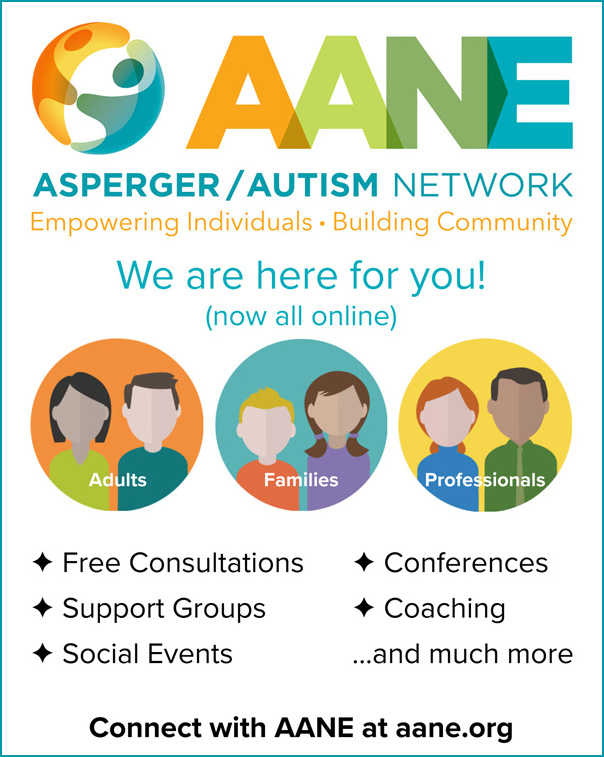Working with your school district to ensure your child is receiving an appropriate education can be challenging. Often parents feel they are not equal members of their children’s educational team, and that decisions are not always made with their child’s unique needs in mind. Add the complexities of special education laws, with timelines and procedures that are unfamiliar to most parents, and it can quickly become overwhelming for many families. It’s then that parents often look for the assistance of an advocate.

The Role of an Educational Advocate
As a parent, you care deeply how your child learns and grows, and about being an equal partner on the team that develops and oversees or carries out your child’s IEP. A good advocate wants to help you assume a primary role in your child’s education. He or she won’t make your decisions for you, but will help you be informed and assist you in considering options and alternatives. A good advocate will empower you.
Not all advocates are the same, and the precise role they take in your case will vary according their training, experience, areas of expertise, and personality – and according to the particular situation. In general, an educational advocate can:
- Answer your questions and simplify the education maze to move toward a better, more appropriate education for your child.
- Examine test results and school records to determine whether further assessment is necessary.
- Suggest possible educational and/or clinical areas to investigate based on the unique needs of your child.
- Provide referrals to proven professionals such as physicians, evaluators, educational consultants, speech therapists, occupational therapists and physical therapists.
- Prepare documentation to support the program your child needs.
- Assist in the process from evaluation through eligibility and IEP development.
- Suggest accommodations to add to your child’s IEP to further support learning, and monitor progress and request program modifications, as needed.
- Investigate and explore alternative educational placements for your child.
- Often, because he or she is familiar with local practices and resources, see solutions that are not immediately obvious.
- Support parents through mediation and other avenues of dispute resolution.
- Most advocates are not attorneys; however skilled advocates will refer the parent to an attorney if necessary.
- Teach parents how to advocate effectively for their child.
Most advocates also consider their role to include fostering a positive and collaborative relationship with schools and school districts to the maximum extent possible, while still holding them accountable to the federal and state laws that are in place to protect your child. Advocates work hard to maintain a professional, respectful, and collaborative meeting atmosphere that encourages the entire team to stay focused on your child’s educational needs. At times, this is their most challenging – and most important – role.
Selecting the Right Advocate for Your Child
Once you have decided that you need the assistance of an advocate, how do you choose one? Although the answers to the questions below will provide important information, it is crucial to feel as though you have connected with your advocate. You have to trust and have confidence in him or her. Often you will get a sense of whether it is a good fit right from the first exchange. Here are questions you may find helpful, and some information about the kind of answers to look for:
What is your education and training?
There is currently no required training to become an advocate. Massachusetts, along with several other states, has taken part in a pilot study of a nationally designed curriculum. At some point in the future there is likely to be a more formal standard for those who want to be advocates.
Until then, they are very fortunate in Massachusetts to have the Parent Consultant Training Institutes (PCTI), provided by The Federation for Children with Special Needs (FCSN). Through this comprehensive training series, many advocates get their first look at the field and begin to develop their skills. The program is unique to Massachusetts; it does not exist in most other states.
You can learn more at www.fscn.org or by calling 1-800-331-0688 to find out about FCSN’s workshops and trainings. The Federation can also help you locate an advocate who has attended their training. When asked, they will supply the names of several people in your area that they feel will match your needs. (Recent graduates of the training – many of whom already have other professional skills before training as an advocate – may have some pro bono hours to donate, too.)
What do you do to keep up to date?
Many advocates continue to build their skills by attending workshops and seminars. There are frequent changes in the way special education laws are interpreted and implemented, so it’s imperative that advocates stay up to date. In this regard, a helpful non-profit professional organization is the Special Needs Advocacy Network, Inc. (SPaN). SPaN offers workshops, training and professional information on issues related to special education, as well as a forum for advocates and interested parents and professionals to share information with each other. SPaN’s website lists important developments in special education and contains a professional directory of advocates.
How long have you been advocating professionally?
Most advocates will agree that although initial and ongoing training is important, it is by working in the field that you truly learn the ropes of advocating. Through experience, advocates find and refine the style that’s most effective for them. Practical experience also helps advocates build their network of resources so they know where to find the help your child needs.
Whatever the level of experience, you should feel the advocate is being honest about it and clear about whether their experience will fit your needs. However, if you are in an urgent situation – a potential expulsion, for example – you will definitely want an advocate who’s well-versed in that specific set of issues. The timelines are very short and the consequences of a mistake are too dire for anything less.
Have you advocated for children with Asperger Syndrome (AS or HFA, PDD-NOS, or NLD) in the past?
It’s not imperative that an advocate specialize in AS – most advocates can assist you simply because they know the ins and outs of the special education process – but it can be helpful. An advocate who has plenty of experience with autism spectrum disorders (or even specializes in it) can offer some useful additions to that general knowledge. He or she often has a strong understanding of the various therapies, treatments, and programs available, and can give you access to a network of proven professionals: physicians, evaluators, behavioral analysts, therapy providers and educational consultants with specialized knowledge of AS.
Even though each child’s pattern of strengths and challenges is unique, children who carry similar diagnoses often share common characteristics. An advocate who understands those characteristics well, and has a set of resources ready to address them, can simplify the process of tailoring the educational program to your child’s needs.
Have you advocated for other families in my school district before?
It is often helpful, though not essential, for an advocate to have experience in your district. By working in a school district advocates gets a first-hand look at the programs available in that district, experience working with the staff, and an idea of how the district works.
An advocate who has a particularly difficult case going on in your district will sometimes refer you to a different advocate, to avoid the possibility that his or her involvement with the difficult case would bias the district against yours. Because of such situations, it can sometimes be an advantage to have an advocate who is new to that district.
If you are considering an advocate who does not have experience in your district, ask him or her how important they think that experience is for your particular situation, and what they would do if they found they needed some additional information about that district.
Do you have enough time to handle my case?
Be sure to outline your needs to your advocate. Most advocates handle several cases at a time and try to monitor their workload closely. Through your initial discussion with your advocate, your needs and the approximate number of hours it will take to meet your objectives will become clearer. If your needs go beyond what the advocate can accommodate, you may want to ask him or her to recommend another advocate.
How much do you charge and what do you charge for?
Be sure to get this information while interviewing prospective advocates. Most advocates will discuss their fee structure with you during your first contact. In addition, many advocates will send you a fee agreement outlining their fee structure and any other policies or limitations they want you to be aware of.
Rates vary, and so do the services that are billed. Most advocates charge an hourly rate, and most charge in some way for travel time. Find out what will be considered billable activities. It is also reasonable to ask for an estimate of the number of hours involved in your case (or at least the initial stage of it).
Some advocates request a deposit or retainer upfront, while others prefer to bill hours as they are worked.
Advocates’ styles vary just as parents’ styles do. Once you’ve identified some qualified candidates, choose one who is compatible with your personality and objectives. You should feel comfortable speaking with him or her and sharing important information about your child. You are about to embark on journey and that mutually understood goals and objectives.
Now that I know how to pick one, where can I find them?
In addition to getting names from The Asperger / Autism Network (AANE) , the Federation for Children with Special Needs, or SPaN, Massachusetts Advocates for Children (MAC) is another great resource for connecting parents with advocates and attorneys. You may also ask for referrals from families who have worked with an advocate in the past. Many pediatricians, evaluators, therapists, and attorneys can provide recommendations as well.
In Closing
Advocates can be important translators between families and educators. In the course of your child’s education, you are likely to interact with a large number and variety of educators and specialists. You need to be able to work effectively with them, exchanging ideas and concerns, and communicating about what’s working and what’s not. Often parents find that they are able to communicate more clearly and negotiate more effectively with an advocate by their side.
Resources
- The Asperger / Autism Network (AANE)
- Special Needs Advocacy Network, Inc. (SPaN) (downloadable directory of advocates)
- The Federation for Children with Special Needs (FCSN)
- Mass Advocates for Children
Stephanie LeBlanc is a Special Education Advocate who specializes in advocating for children on the autism spectrum. To learn more about Stephanie, visit her website www.AutismSpectrumAdvocacy.com.
Christine Riley is a graduate of Marymount University in Arlington VA. She is a trained advocate and mediator. Christine resides on Cape Cod with her husband and son. To learn more about Christine, visit her website www.capecodadvoate.com.
This article has been reprinted with permission. You may view the original article at www.aane.org/basic-guidelines-choosing-advocate-child.




